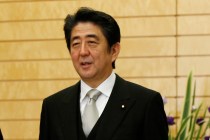The past 10 years covering gaming nationally and internationally have been nothing short of a theme park thrill ride that Disney’s greatest designers couldn’t conjure. Las Vegas hit an apex in 2007, only to be brought low by recession. The market is slowly recovering.
Business Columns
American Gaming Association CEO Geoff Freeman would like to believe the trade group had at least a small role when Massachusetts residents overwhelmingly voiced support for casinos by a 60-40 margin. He’s probably correct.
On a whole, the locals market gaming revenue through September is down less than 1 percent from 2013, according to the Gaming Control Board.
It’s unclear if Boyd Gaming Corp. will ultimately spin-off all or a portion of the company’s casinos into a real estate investment trust. But the idea certainly piqued the interest of the investment community.
By all accounts, a referendum to undo Massachusetts’ casino law should get crushed in Tuesday’s election and lose by some 15 to 20 percentage points. That’s what the most recent polls say. Then again, this is Massachusetts.
In the grand scheme of things, the proxy fight over Full House Resorts seems like small potatoes. But with regional markets on a downward trajectory, the company is ripe for the taking.
New smoking rules have been the least of the problems to beset Macau this year. The Chinese gaming enclave has experienced four straight months of gaming revenue declines.
To paraphrase Monty Python, gaming expansion in Japan is apparently not dead yet. That’s good news to some of the world’s biggest casino operators, who view the Land of the Rising Sun as the Holy Grail.
A year ago, Las Vegas Sands Corp. was looking to sell its Pennsylvania hotel-casino complex, housed on the historic site of the long-closed Bethlehem Steel Mill. Now, the company is prepared to invest $800 million into the development.
Anyone who has followed Dan Lee over the years understands his motivation in launching a proxy fight for control of regional casino operator Full House Resorts. He sees opportunity.
Amaya Gaming Group CEO David Baazov engineered the $4.9 billion acquisition this summer of online gaming giant PokerStars. If he is successful in restoring the once-tainted PokerStars presence in the U.S., the move could dramatically change the financial prospects of the American online gambling market.
Since Secaucus, N.J., “no longer smells like pig farms,” Sheldon Adelson wouldn’t mind building a casino in the nearby Meadowlands sports complex.
Bob Scucci, the director of race and sports for Boyd Gaming Corp., said the company’s recent launch of its mobile wagering application could bring more gamblers into the fold.
On the surface, the lines between the commercial casino industry and Indian gaming are evaporating. But in terms of gaming revenue, the lines of division are pretty solid.
Richard Haddrill’s second term as CEO of slot machine giant Bally Technologies will be short-lived. Nearly 17 months after he handed the reins of the gaming equipment manufacturer to his hand-chosen successor, Haddrill gave up his chairman’s seat and returned to the CEO’s desk on May 23.

















